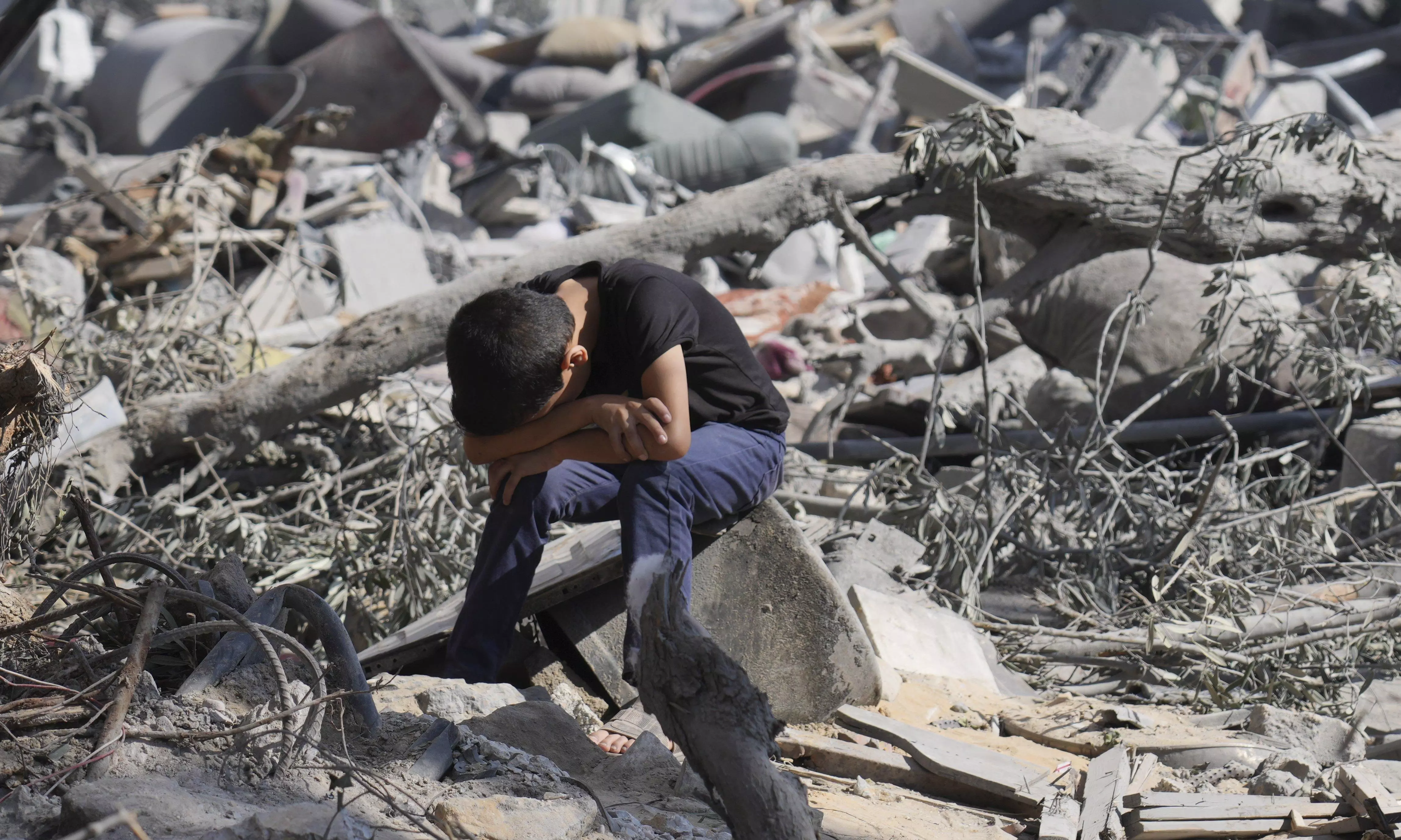
- Home
- India
- World
- Premium
- THE FEDERAL SPECIAL
- Analysis
- States
- Perspective
- Videos
- Sports
- Education
- Entertainment
- Elections
- Features
- Health
- Business
- Series
- In memoriam: Sheikh Mujibur Rahman
- Bishnoi's Men
- NEET TANGLE
- Economy Series
- Earth Day
- Kashmir’s Frozen Turbulence
- India@75
- The legend of Ramjanmabhoomi
- Liberalisation@30
- How to tame a dragon
- Celebrating biodiversity
- Farm Matters
- 50 days of solitude
- Bringing Migrants Home
- Budget 2020
- Jharkhand Votes
- The Federal Investigates
- The Federal Impact
- Vanishing Sand
- Gandhi @ 150
- Andhra Today
- Field report
- Operation Gulmarg
- Pandemic @1 Mn in India
- The Federal Year-End
- The Zero Year
- Science
- Brand studio
- Newsletter
- Elections 2024
- Events
- Home
- IndiaIndia
- World
- Analysis
- StatesStates
- PerspectivePerspective
- VideosVideos
- Sports
- Education
- Entertainment
- ElectionsElections
- Features
- Health
- BusinessBusiness
- Premium
- Loading...
Premium - Events

The war will have an impact on societies worldwide with a rise in anti-Semitism, Islamophobia, and generalized xenophobia, weakening democracy in general
Around 10,000 Palestinian residents of Gaza have been killed, about 40 per cent of them children, in Israeli attacks on Gaza so far. The slaughter continues. This will have an impact, less directly lethal but no less malign, on societies around the world, with a rise in anti-Semitism, Islamophobia and generalized xenophobia, strengthening conspiracy theorists and extreme right-wing parties, and weakening democracy, in general.
Israeli Prime Minister Netanyahu’s prolonged rule has been complicit in laying the ground for the Hamas attack on October 7, in more ways than one. He made it appear that a political solution for the stateless desolation of Palestinians was dispensable, so long as their protests could be contained militarily. His failure to secure a majority for his own Likud party and his isolation in the political mainstream, thanks to corruption charges and much else, have forced him to seek allies among extremist Jewish parties that encourage settler violence and greater expansion of illegal settlements, further fuelling conflict.
His attempt to undermine the country’s judicial authority to review government decisions has hollowed out not just his own legitimacy in the eyes of Israeli citizens but also a key component of democratic accountability in Israeli politics. His military and security agencies’ failure to anticipate the kind of attack the terror outfit Hamas launched on October 7 facilitated the killing of over 1,400 Israelis, most of them civilians, including women and children.
Netanyahu seeks to wash away the stain of his own failings with the blood of Palestinians. A leader with a conscience less burdened with his own culpability for Israel’s casualties on October 7 would also have avenged the Hamas attack, but probably not been so brutal for so long, and would, more likely than not, been willing to look beyond the short term.
Wave of Islamophobia
When Palestinians are the greater sufferers, by far, why should the war on Gaza provoke a wave of Islamophobia? Ask the Sangh Parivar activists in India, who launched a social media Blitzkrieg in support of Israel (the grotesque incongruity some might see in a “Blitzkrieg in support of Israel”, given that the Blitzkrieg and the Holocaust were both innovations of the same worthy, is purely a product of mental laziness). Or ask Donald Trump, who has reiterated his promise to reimpose his one-time travel ban on Muslim countries, when and if he gets re-elected.
The barbarity of the initial attack by Hamas produced revulsion, feeding latent Islamophobia. Radicalised Islamists could stage terror attacks of varying intensity, feeding the sentiment. The Israeli Defence Forces’ ruthless prosecution of medieval justice, which calls for an eye for an eye and a tooth for a tooth, by waging war on non-combatants, women, children, and patients inside hospitals, casts Israel in a malignant light. This feeds anti-Jewish sentiments, whose roots go beyond the Jews’ traditional role as moneylenders in Europe to Christian resentment against those who refuse to accept Jesus as the Messiah. These two streams of grievance meld together in the depiction of the Rothschilds, innovative financiers who used carrier pigeons to leverage advance information during the days before the telegraph, as Satan-worshipping bloodsuckers, in a long-running conspiracy theory.
What the Israel-Gaza war, directly involving about 2 million people, does is to polarize Europe and North America, besides the Middle East and parts of Asia, which collectively house populations running to hundreds of millions. Once people are polarized against any other group, dividing their communities into us and them, they start othering everyone who is not part of “us”. This results in generalized xenophobia. The migrants from West Asia and Africa, who try to find their fortune in Europe, bear the brunt of this instinct to exclude. Islamophobes of all shades add their bit to fragmenting social solidarity in country after country.
The result is to give rise to politics that erodes democracy. No polity anywhere in the world is a perfect democracy, some just about managing to be less nasty than the rest. The erosion of social cohesion leads to a corrosion of democracy, everywhere. Polarising figures like Modi in India and Le Pen in France gather strength. Charlatans like Donald Trump get elected to high office, and degrade their nations, and the world.
The killings in Gaza will not stay in Gaza.
The road ahead
Israel should stop the attacks, negotiate release of the hostages in return. But what of the Hamas?
Hasn’t the Hamas shown that terror brings results, now that the world has woken up to the need to find a lasting solution to the conflict between Israel and Palestine, after its dastardly strike on Israel? The view has plausibility, at first blush. But that would be an incorrect reading of the developments.
The Hamas attack does not show that terror, wielded as an instrument of choice to advance the interests of a resistance movement, is effective. What the Hamas attack shows, on the other hand, is that relentless oppression of a people, denying them any opportunity for a just resolution of conflict, would necessarily produce a violent backlash.
Hamas deserves no credit. Rather, just as the Liberation Tigers of Tamil Eelam derailed the Tamil agitation for their rights against Sinhala chauvinism, the Hamas has delivered a setback to the Palestinian cause, and joined hands with Zionist extremists, to polarize societies across the world, and further alienate Muslim minorities everywhere.
Advocates of democracy must resist this polarizing tendency among their own societies, apart from urging Israel to stop the attacks and begin fleshing out the two-state solution that has been put off for three decades.
(The Federal seeks to present views and opinions from all sides of the spectrum. The information, ideas or opinions in the articles are of the author and do not necessarily reflect the views of The Federal)


